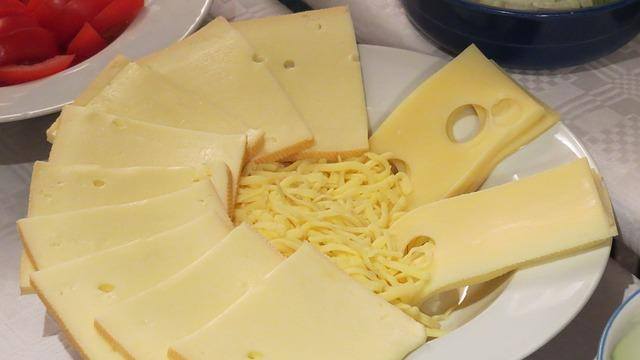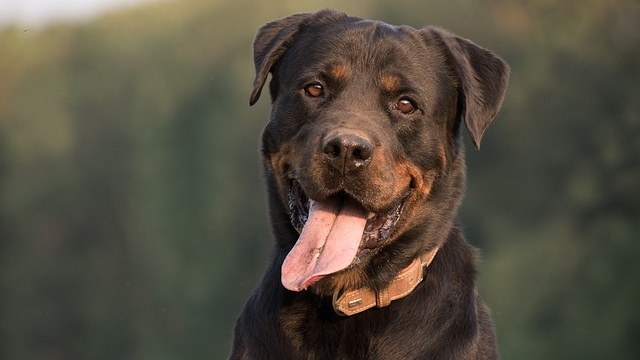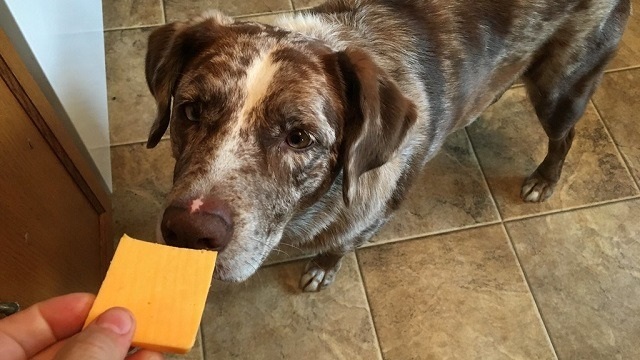Most people agree that cheese is a tasty treat. If that’s your case, we bet that every time you’re eating a delicious slice, your pup is right by your side… Promptly making those puppy eyes, and insisting that sharing is caring! In times like those, you may wonder – can dogs eat cheese? Let’s dive into the matter and find out if cheese is a safe snack for your canine best friend.
Can dogs eat cheese?

The short answer is yes, cheese is non-toxic to dogs. However, it will depend on your dog’s individual sensitivities and the type of cheese.
Some dogs, like humans, struggle with the digestion of cheese – especially with the fatty types.
What are the health benefits of cheese?

Cheese is fully packed with nutrients such as protein, calcium, zinc, phosphorus, vitamin A, and vitamin B12. Some studies show that certain types of cheese can add beneficial bacteria to your dog’s gut. Besides, dogs love cheese, which makes it a great choice for training treats, behavioral rewards and hiding pills treats.
What should I be aware of when offering cheese to my dog?

There are some important considerations to have in mind when it comes to offering cheese to your pup. High salt content and high fat content are two things to keep in mind. Any dog with salt restrictions, fat restrictions or a calorie-controlled diet should not be fed cheese.
Lactose intolerance is another topic to be aware of. To break down lactose, your dog needs to have a digestive enzyme called lactase, and not all dogs produce this enzyme. Cheese contains less lactose than milk, but this still needs to be taken into consideration. Dogs with a severe lactose intolerance should not be fed cheese in any way.
Healthy dogs can eat some types of cheese in moderation. The best types are: Soft Cheese (Young Cheddar, Mozzarella, String Cheese), Low-Sodium Cottage Cheese and Plain Low-Fat Cream Cheese. Oppositely, as a big no, Blue Cheese should never be fed to dogs.
If you’re not sure whether your dog will react well to cheese, try feeding a very small amount and keep a close eye on them for the next hours. Should any signs of stomach upset occur, stop offering it. If everything remains normal, you can increase the amount a little bit. Just remember to keep the amount offered at no more than 10% of their calorie intake!
Maven is all about proactive pet care. Be your best friend’s best friend by giving them 24/7, high-quality, industry-leading vet care to improve their mental health, physical health and more. No more frantic googling or unneeded stressful visits to the vet – Maven helps you save hundreds while also ensuring your pet lives the best life possible. Get your kit now!

